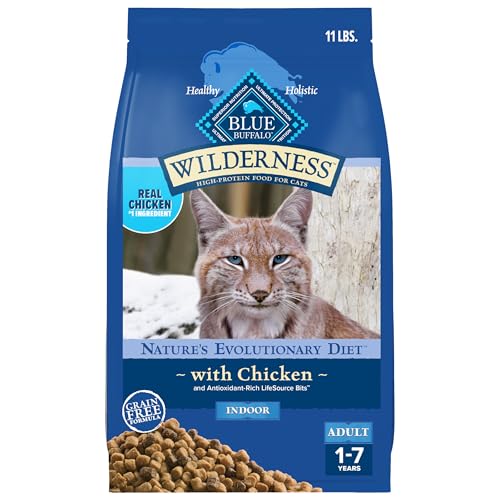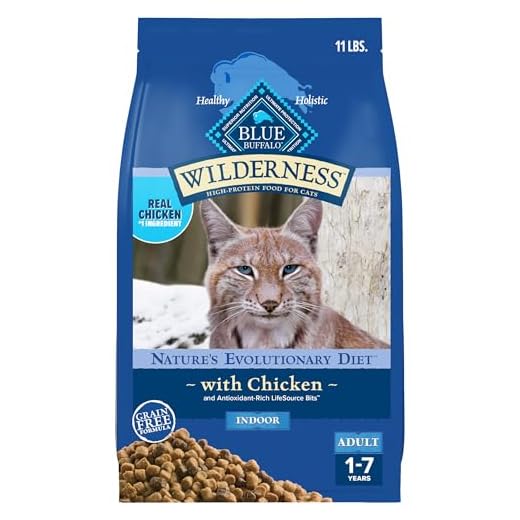



Regularly cleaning the litter box is non-negotiable. A clean space significantly reduces unpleasant scents. Make sure to scoop daily and replace litter weekly to maintain freshness.
Diet plays a crucial role in odor levels. High-quality food with balanced nutrients can lead to less pungent waste. Avoid fillers and artificial additives; they can contribute to stronger odors.
Hydration is equally important. Adequate water intake helps dilute waste, resulting in milder aromas. Ensure fresh water is always available to support this essential need.
Health issues can impact scent as well. If the smell becomes unusually strong or changes suddenly, a vet visit is wise. Conditions like infections or digestive problems can lead to more offensive odors.
Finally, consider the litter type. Some materials absorb odors better than others. Experiment with different brands to find the one that keeps your space smelling pleasant.
What Makes My Waste Odorous
Diet plays a significant role in the scent of my droppings. High-quality food with natural ingredients leads to less pungent results. If I’m munching on low-grade kibble filled with fillers, the odor is much stronger. Opt for diets rich in protein and fiber for better outcomes.
Health Factors
Illness can contribute to unpleasant aromas. Here are some conditions that may affect the fragrance:
- Parasites like worms can create foul odors.
- Digestive issues, including inflammatory bowel disease, can alter the scent.
- Infections, particularly in the gastrointestinal tract, can lead to strong smells.
Hydration and Litter Choices
Water intake is crucial. If I’m not drinking enough, my waste can become concentrated and smellier. Additionally, the choice of litter can influence how odors are perceived. Clumping litters or those with odor-controlling properties can help manage unpleasant scents effectively.
Regular vet check-ups are essential to ensure my health and diet are on point. Keeping an eye on what I consume and monitoring changes in my waste can help maintain a fresh environment.
Understanding Feline Digestion and Its Impact on Odor
Regularly observing my diet makes a significant difference in the fragrance of my waste. High-quality foods with natural ingredients promote better digestion, leading to less pungent results. Grain-free options often help minimize unpleasant odors, as they are easier for my system to process.
Nutritional Balance
Proteins from animal sources are crucial. I thrive on meat-based meals, which not only fuel my playful antics but also support a healthier digestive process. Supplementing with fiber, like pumpkin or psyllium, can aid digestion and reduce strong scents.
Hydration Matters
Staying hydrated enhances the overall functioning of my digestive tract. Access to fresh water daily ensures that my body efficiently processes food, which can lessen the intensity of odors. Dehydration can lead to more concentrated waste, resulting in stronger aromas.
Dietary Choices That Contribute to Strong Odors
Switching to a high-quality diet can significantly reduce unpleasant odors. Look for options rich in animal proteins, as they promote healthier digestion. Avoid excessive fillers like corn and soy, which can lead to fermentation and gas production.
Specific Foods to Avoid
Some ingredients are notorious for causing foul scents. Here’s a list of common culprits:
| Food Item | Reason |
|---|---|
| Fish | Can produce strong odors during digestion. |
| Dairy | Many felines are lactose intolerant, leading to digestive upset. |
| Beans | High fiber content often results in gas. |
| Processed Meats | Packed with preservatives that may disrupt gut health. |
Incorporating Beneficial Ingredients
Adding certain items can help minimize odors. Consider including:
- Pumpkin: Aids digestion and can firm up stools.
- Probiotics: Support gut health and balance bacteria.
- Digestive enzymes: Assist in breaking down food more efficiently.
Monitoring my diet has made a noticeable difference. Keeping track of how different foods affect me can help any feline friend lead a fresher-smelling life! Don’t forget to consult with a vet when making changes to diet.
Health Issues Leading to Foul Smelling Feces
Regular check-ups with the vet can help identify underlying health concerns affecting digestion. Conditions like inflammatory bowel disease (IBD) can lead to unpleasant odors. Signs include weight loss, vomiting, or changes in appetite.
Another issue to consider is parasites. Worms and other intestinal invaders can disrupt normal digestion, resulting in foul odors. A top-notch solution is using non toxic flea treatment for cats to prevent infestations and maintain overall health.
Diabetes can also impact the scent of waste. Increased thirst and urination are common indicators. Regular monitoring of these symptoms is essential for managing the condition effectively.
Kidney disease may produce a strong, ammonia-like odor due to the buildup of toxins in the body. Regular vet visits assist in early detection and management of this serious issue.
Additionally, liver problems can alter the composition of waste, leading to offensive smells. Symptoms may include jaundice or changes in behavior. Prompt veterinary care is crucial.
Lastly, stress can play a role. Anxiety may lead to gastrointestinal upset, resulting in less-than-pleasant odors. Keeping a calm environment is important for mental and physical health.
The Role of Hydration in Stool Odor
Drinking enough water significantly impacts the odor of my waste. When I’m well-hydrated, my body can process food more efficiently, leading to firmer and less pungent droppings. Aim for me to have access to fresh water at all times. Consider using a pet water fountain; they tend to encourage me to drink more.
Signs of Dehydration
Watch for signs that indicate I might not be drinking enough. Dry gums, lethargy, or concentrated urine can signal dehydration. If you notice these signs, it’s essential to increase my water intake, as hydration plays a direct role in reducing unpleasant odors.
Hydration and Diet Interaction
The type of food I eat also interacts with hydration levels. Dry kibble, while convenient, can lead to decreased water consumption. Choose wet food options, which not only keep me hydrated but also help in minimizing strong scents from my litter box. Ensuring a balanced intake of fluids can significantly improve the situation.
How Parasites Can Affect the Odor of Feline Waste
Regular vet check-ups are crucial to identify if parasites are present. These unwelcome guests can significantly alter the aroma of my droppings. Common culprits like hookworms and roundworms can lead to unusually strong odors due to their impact on digestion and nutrient absorption.
When these parasites invade, they disrupt my digestive processes, resulting in incomplete breakdown of food. This can produce more potent waste. It’s not just about the smell; the presence of parasites can also lead to other health issues, such as diarrhea or vomiting, which can further exacerbate the unpleasant scent.
Maintaining a parasite-free environment is essential. Regular deworming and good hygiene practices in my litter area can help minimize risks. If you notice any changes in odor or consistency, consulting a veterinarian quickly can ensure any underlying issues are addressed promptly.
Monitoring my behavior is important too. If I seem lethargic or lose weight unexpectedly, it could indicate the presence of parasites. Keeping an eye on my overall health helps in catching any problems early, which is always preferable.
In conclusion, staying vigilant about potential parasites not only helps manage the unpleasantness of my waste but also contributes to my overall well-being. Regular health checks and preventive measures go a long way in keeping everything on track.
Cleaning Practices to Manage Odor Effectively
Regular litter box maintenance is key. Scoop daily to remove waste and keep the area fresh. This simple habit prevents the build-up of unpleasant scents.
Choosing the Right Litter
Opt for clumping or odor-absorbing varieties. These types help contain the stench and make clean-up easier. Some litters are specifically designed to neutralize odors, which can significantly improve the environment.
Deep Cleaning Techniques
Wash the litter box weekly with a mixture of mild soap and water. Rinse thoroughly to eliminate any residue. For stubborn odors, a vinegar solution can be effective. Ensure the box is completely dry before adding fresh litter.
Consider using a best pressure washer for use with water tank for outdoor cleaning of litter boxes or related items, as it can remove any lingering odors and grime efficiently.
Ventilation also plays a role. Ensure the litter box area is well-ventilated to disperse any unpleasant aromas. Adding an air purifier can further enhance air quality.
By implementing these practices, you can maintain a fresher living space and reduce any offensive odors effectively.










